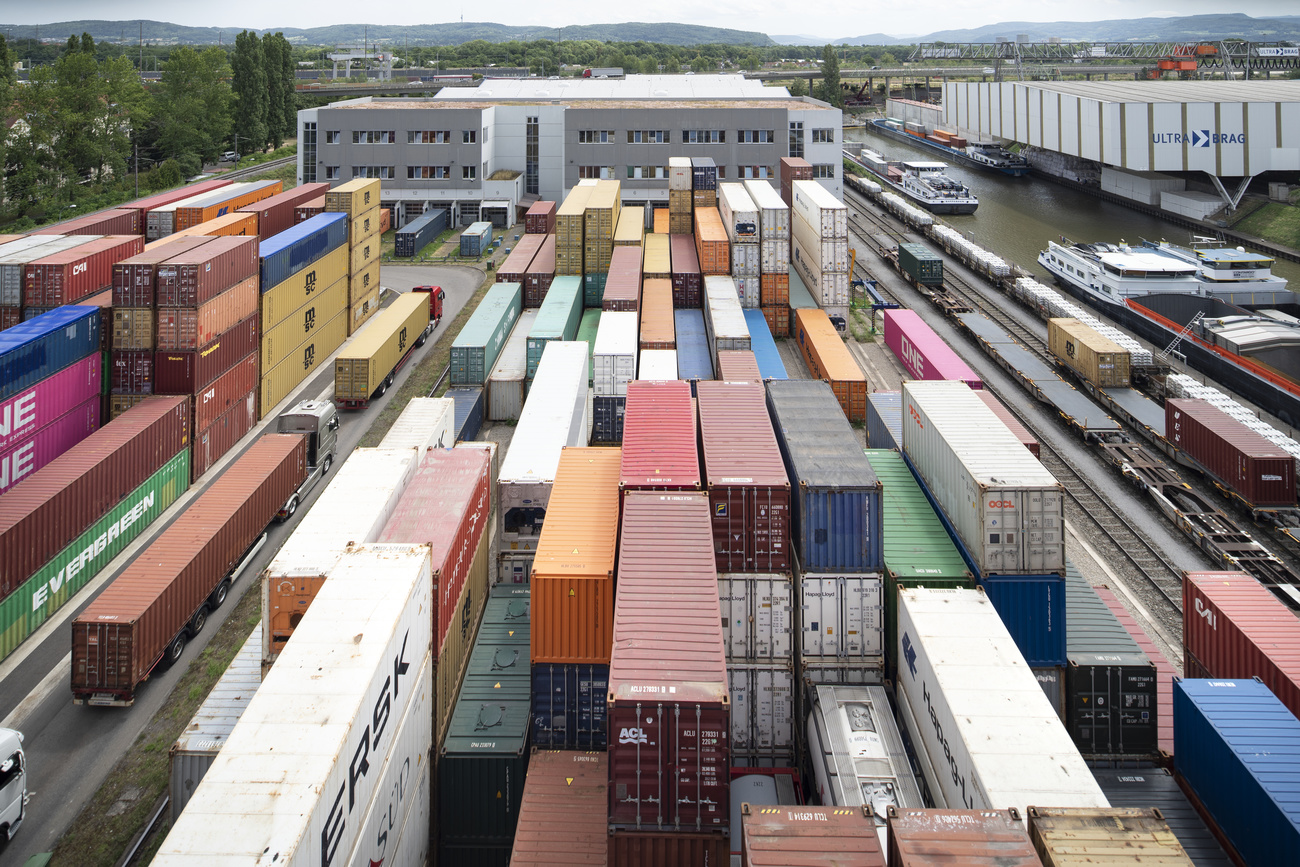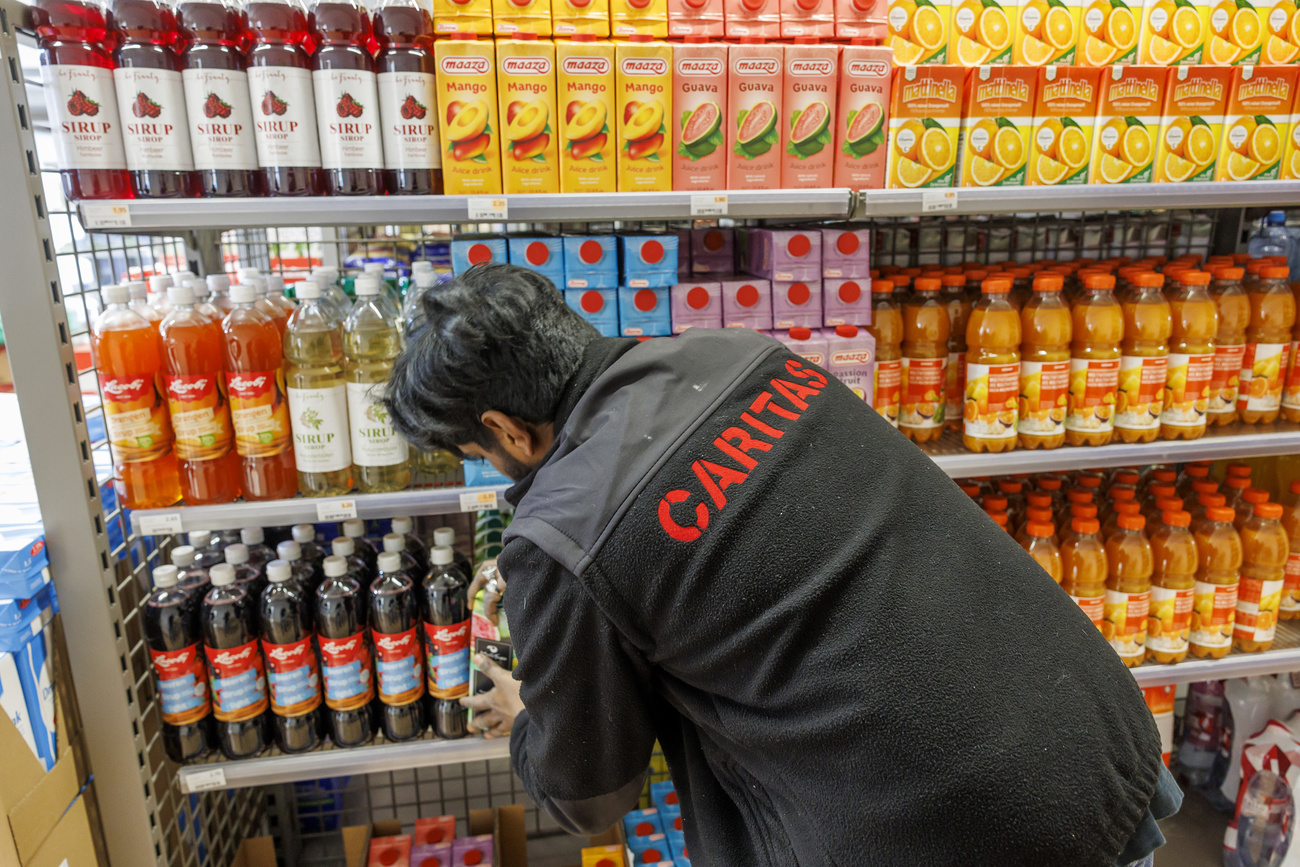
Poverty in southern Swiss canton rising: one in four at risk

More and more people in the southern Swiss canton of Ticino lack money for basic needs. Poverty is growing and politicians seem powerless.
In canton Ticino, aid organisations such as Winterhilfe and the “Set the Table” association are sounding the alarm bells. They say that poverty among the local population is growing. So, they are stepping up their aid programmes, including food donations.

More
Swiss salary illusion: precarious cost of living sets off alarm bells
Capuchin friar Martino, who is responsible for the “Francesco Foundation”, also notes that more and more people are asking for help at his food bank. An increasing amount of people lack the money to fulfil their basic needs. Many find it difficult to talk about it: “Poverty is a disgrace for many people in canton Ticino,” he says.
Less than CHF2,500 per month
People are increasingly turning to drop-in centres, where they don’t have to identify themselves to get a hot meal. Statistics show that one in four people in canton Ticino is at risk of poverty.
This means that they get by on less than CHF2,500 ($2,873) a month. The situation is the same in the region of Lake Geneva. In the rest of Switzerland, however, only one in seven people is at risk of poverty.

More
Cost-of-living squeeze puts Swiss households at poverty risk
Economics professor Christian Marazzi published the first study on poverty in canton Ticino 30 years ago. He says that what has changed in the last 30 years is the way we perceive poverty in Switzerland and the fact that we talk about it in the first place. He used to be accused of inventing poverty. Then as now, it is mainly women who are affected by this issue. And unlike back then, today there is the phenomenon of the working poor.
Another difference is the sharp increase in temporary workers, which goes hand in hand with the increase in cross-border commuters. This development is fuelling wage pressure. Talks of wage dumping are a never-ending issue in canton Ticino. The risk of slipping into poverty is also present in people’s perceptions.
A failure of politics?
People used to talk about poverty in social circles, in churches or within the political left. The right-wing movement “Lega dei Ticinesi” also brought the issue to the right wing: the party focused its attention on the risk of poverty very early on. “All parties are talking about poverty today.”

More
Let’s Talk: Poverty in wealthy Switzerland
However, as the risk of poverty does not tend to decrease, politics must inevitably be accused of a certain failure, says Marazzi. In his eyes, one thing is clear: the risk of poverty will only decrease if fundamental changes are made in politics and society.
Labour must be better distributed, and consumption must be reconsidered. The same goes for profit maximisation. The 72-year-old economist from Ticino, who publishes internationally, hopes for this reversal. Not for himself, as he says, but for young people.
This news story has been written and carefully fact-checked by an external editorial team. At SWI swissinfo.ch we select the most relevant news for an international audience and use automatic translation tools such as DeepL to translate it into English. Providing you with automatically translated news gives us the time to write more in-depth articles. You can find them here.
If you want to know more about how we work, have a look here, and if you have feedback on this news story please write to english@swissinfo.ch.

In compliance with the JTI standards
More: SWI swissinfo.ch certified by the Journalism Trust Initiative














































You can find an overview of ongoing debates with our journalists here . Please join us!
If you want to start a conversation about a topic raised in this article or want to report factual errors, email us at english@swissinfo.ch.